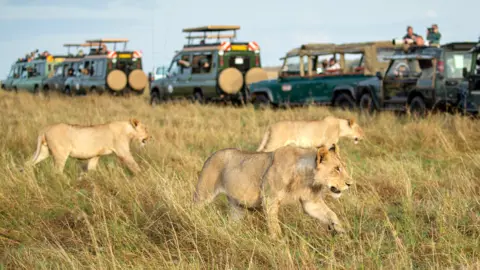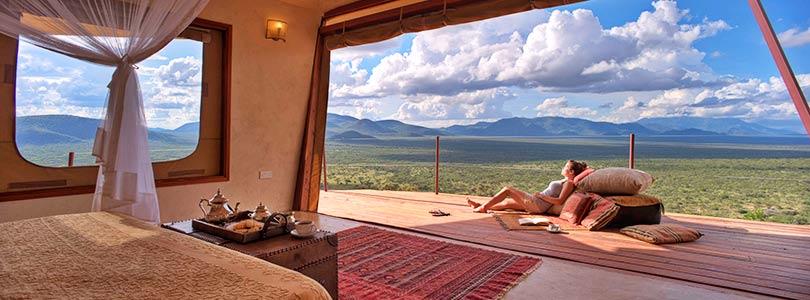Best Tips On Selecting Kenya Safari Packages Prices
Wiki Article
What Security And Safety Precautions Should I Be Aware Of Before A Holiday In Mombasa Kenya?
It is crucial to keep an eye on security and safety concerns when you visit Mombasa in Kenya. This will ensure an enjoyable and stress-free trip. Be aware of these important points:
1. General Safety
Keep yourself informed. Stay up-to-date with local news and any travel tips from the country you're visiting.
Sign up at the Embassy of your choice.
2. Health safety precautions
Immunizations: Make sure you're current with your routine vaccinations. You may also want to think about additional vaccines like Hepatitis A, Hepatitis B, Typhoid and Yellow Fever.
Mombasa is a place with a high prevalence of malaria. Make use of antimalarial medications as well as insect repellents. Sleep under mosquito nets. Wear long sleeves.
Food and water safety Drink boiled or bottle water, do not drink the use of ice cubes, and consume properly cooked food. Be aware of street food.
3. Personal Safety
Avoid walking alone at night Avoid areas that are well-lit and areas that are densely populated. Avoid walking on the beach or in isolated areas after dark.
Secure Your Valued Items Hotel safes are a great way to keep cash, passports, and other important items. Avoid displaying valuable items like electronic devices and jewelry.
Select a reliable transportation service: Choose certified taxis, ride hailing services, or transportation arranged by your Hotel. Beware of taxis that are not marked.
4. Local Laws and Customs
Dress modestly and respectfully Particularly when visiting places of worship. Be mindful of the local practices.
Kenya has strict laws on drugs and harsh penalties. Beware of any involvement in the illegal use of drugs.
Always ask for permission when taking pictures, particularly in areas of rurality and government or military buildings.
5. Beach Safety and Water Safety
Safety in Swimming Take note of local advice about swimming conditions and currents. Utilize designated swimming areas.
Marine Life: Be aware of marine wildlife like jellyfish and Urchins. When walking on the beach, be sure to wear appropriate footwear.
6. Crime Prevention
Petty crime: When there are a lot of areas, bag-snatching and pickpocketing may occur. Keep your belongings in a secure location and watch out for.
Scams: Be wary of anyone who offers overly extravagant assistance or offers that seem too promising to be true. Utilize licensed tour guides.
Emergency Contacts: Know the emergency numbers in your area such as Police (999), Fire (999) and Ambulance (999). Keep the contact details of your country's embassy or consulate handy.
7. Natural Hazards
Weather: Mombasa enjoys a tropical climate with the potential for floods and heavy rainfall. This is especially the case in the rainy season, from April to June and from October through November. Stay informed about weather forecasts.
Sun Protection Apply sunscreen and wear a hat to keep from getting sunburn.
8. Travel Insurance
Travel Insurance with Comprehensive Coverage - Make sure that you have a comprehensive travel insurance policy to protect you from medical emergencies, thefts loss, interruptions of travel. Check if your insurance plan covers water sports and other activities you are planning to do.
If you take into account these safety and Security concerns, you will have a much more enjoyable time in Mombasa. Read the most popular kenya day tours for more tips including kenya travel packages, kenya tours and safaris, trips to kenya africa, kenya tour operator, mombasa safari, kenya travel packages, afri safari, facts about kenya, cheap kenya safari packages, trips to kenya safari and more.

What Are The Weather Considerations Must I Be Aware Of Prior To A Holiday In Mombasa Kenya?
It is essential to know the weather patterns of Mombasa prior to packing and enjoy your time off. Here are some key factors to consider when planning your trip.
1. Climate Overview
Tropical Climate: Mombasa has a tropical climate with high temperatures and high humidity all year. The forecast is for warm temperatures and temperatures typically range between 24degC(75degF), and 32degC(90degF).
2. Seasons
The season of hot and humid (November toApril) The time of year when the temperature is high and humidity high. The peak season for tourism is January and December.
Long Rains (April to June): The rainy season can bring heavy rainfall and occasional thunderstorms. Roads can become muddy and challenging to navigate. This is a low-season for tourism.
Cooler Season (June September - October) You can enjoy the cooler temperatures and less humidity throughout this time. The weather is generally pleasant, making it the perfect time for outdoor pursuits.
Short Rains: During this time it is a time of fewer and less intense rain showers. The rains generally last just a few minutes and are followed by bright skies.
3. Packing Tips
Lightweight Clothing – Pack clothing that's breathable and lightweight such as cotton or linen to keep cool when the weather is hot.
Rain Gear: If traveling during the rainy seasons take an waterproof jacket as well as an umbrella and waterproof shoes.
Sun Protection: Apply sunscreen with high SPF. Wear a broad-brimmed glasses and a hat. Wear light clothes that cover the skin.
Swimwear is essential for the beach and hotels pools.
4. Weather-specific activities
Beach Time - The ideal time to visit the beach in cooler weather (June through October) is when the ocean is calm and the weather is pleasant.
The clear, calm water from November through March is ideal for snorkeling, diving and other water sports.
Wildlife viewing: When the weather gets better, it is a great time to go on safaris or nature excursions.
5. Health-related Considerations
Be sure to drink plenty of water. The hot and humid weather will make it necessary to keep hydrated. Drink plenty of fluids especially when you are spending time outdoors.
The heat-related disorder: Be aware of the risks of heatstroke and exhaustion. Wear loose clothing and frequent breaks in the shade. Avoid strenuous activities during the peak heat.
6. Travel Adjustments
Traveling in the rainy season If you are planning to travel during the prolonged rainy season be prepared for potential travel disruptions. Certain roads could be blocked and outdoor activities might be restricted.
Delays in flights: Tropical storms and rain can lead to delays on flights. Be aware of your travel plans and make contingency plans.
7. Environmental Concerns
Natural Hazards - Know that heavy rain can cause flooding. Be aware of the weather, and be sure to follow local safety advice.
Be aware of tides. They are unpredictable and could have a significant impact on beach activities. Check local tide charts for safe swimming, beachcombing and other activities.
If you are aware of the significance of the weather, then you'll be in a position to plan your trip with care, pack appropriately and ensure your trip to Mombasa is secure. Read the recommended kenya mombasa train for blog tips including afri safari, luxurious african safari, facts about kenya, mombasa beach kenya, mombasa packages, mombasa tour packages, african safari kenya, mombasa safari, safari trips in kenya, tour agents in kenya and more.

What Environmental Requirements Do I Have To Be Aware Of When I Am What Environmental Responsibilities Should I Be Aware Of When Traveling Mombasa, Kenya?
It is essential to be responsible for the environment while traveling in Mombasa. This will ensure the beauty and biodiversity of the area. Here are some important environmental responsibilities to consider:
1. Sustainable Accommodation
Eco-friendly Hostels: Pick hotels that are committed to implementing sustainable practices. You can look for eco-friendly certifications from Eco-Tourism Nairobi and other eco-labels.
Resource Conservation: Take part in hotel initiatives to save water and energy. Reuse towels and linens, turn off lights and air conditioning when in use.
2. Responsible Wildlife Viewing
Be respectful of wildlife: Maintain your distance from wildlife to avoid disturbing them. Follow the instructions given by your tour leader.
Do not feed wildlife. Feeding animals can disturb their natural diet.
Leave No Track: Never litter in wildlife parks or preserves. Bring all garbage with you and dispose it in a safe manner.
3. Plastic Reduction
Avoid plastics that are single-use. Carry a water bottle or bag that is reusable, as well as the utensils.
Support local initiatives: Take part in beach cleanups and help groups that help reduce the impact of plastics on the environment.
4. Water Conservation
Mombasa has water shortages. Switch off the water taps and take a shower that is shorter.
Biodegradable products: Choose biodegradable or eco-friendly toiletries in order to limit water contamination.
5. Energy Conservation
Reduce Energy Consumption: Limit the usage of air conditioning, and disconnect devices that aren't in use.
Encourage Renewable Energy Choose accommodations and tour operators that make use of renewable energy.
6. Sustainable Transportation
Reduce your carbon footprint by using public transportation, like matatus or buses, as often as feasible.
You can think about eco-friendly alternatives such as renting a bike or jogging short distances. There are some areas that offer eco-friendly tuktuks.
7. Helping to support local economies
Buy Local: Purchase local-made souvenirs foods, crafts, and other items from local vendors and artisans to help the local economy.
Fair Trade - Select fair trade products to make sure that local producers get a fair price.
8. Environmental Education
Learn and share: Learn about the local environment and conservation initiatives. To spread awareness, share what you've learned with your friends and family.
Respect Local Cultural Practices: Learn and respect local customs in the area of conservation of the environment.
9. Marine Conservation
Responsible Snorkeling and Diving Do not touch or step directly onto coral reefs. Use sunscreen that is safe for reefs and non-toxic to help protect marine wildlife.
Avoid dumping rubbish in the ocean. Join or help support programs for marine conservation.
10. Ethical Souvenirs
Avoid products that are a result of wildlife: Do not purchase items made from endangered animals like ivory and tortoiseshell.
Sustainable Materials: Choose products made of recycled or sustainable materials.
11. Participate in conservation activities
Volunteer: You are able to volunteer to assist local conservation efforts or tourism-based initiatives.
Help local non-governmental organizations. Contribute to local NGOs, as well as organizations dedicated to protecting the natural environment.
12. Responsible Travel practices
Groups of small size in order to lessen the impact on the environment.
Eco-Tours: Pick tour operators that are environmentally sustainable and dedicated to sustainability.
Be aware that these responsibilities can help you preserve the Mombasa's precious natural resources, as well as preserve the beauty and variety of the area for future generation. View the top kenya day tours for blog examples including trips to kenya safari, holiday packages mombasa, africa safaris and tours, travel tours in kenya, kenya safaris and tours, kenya travel packages, safari a nairobi, mombasa travel agency, holiday packages mombasa, mombasa travel agency and more.
